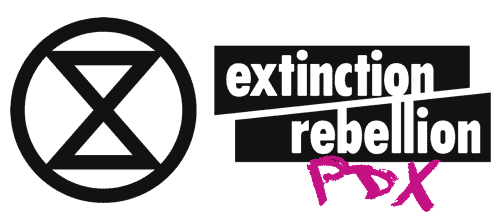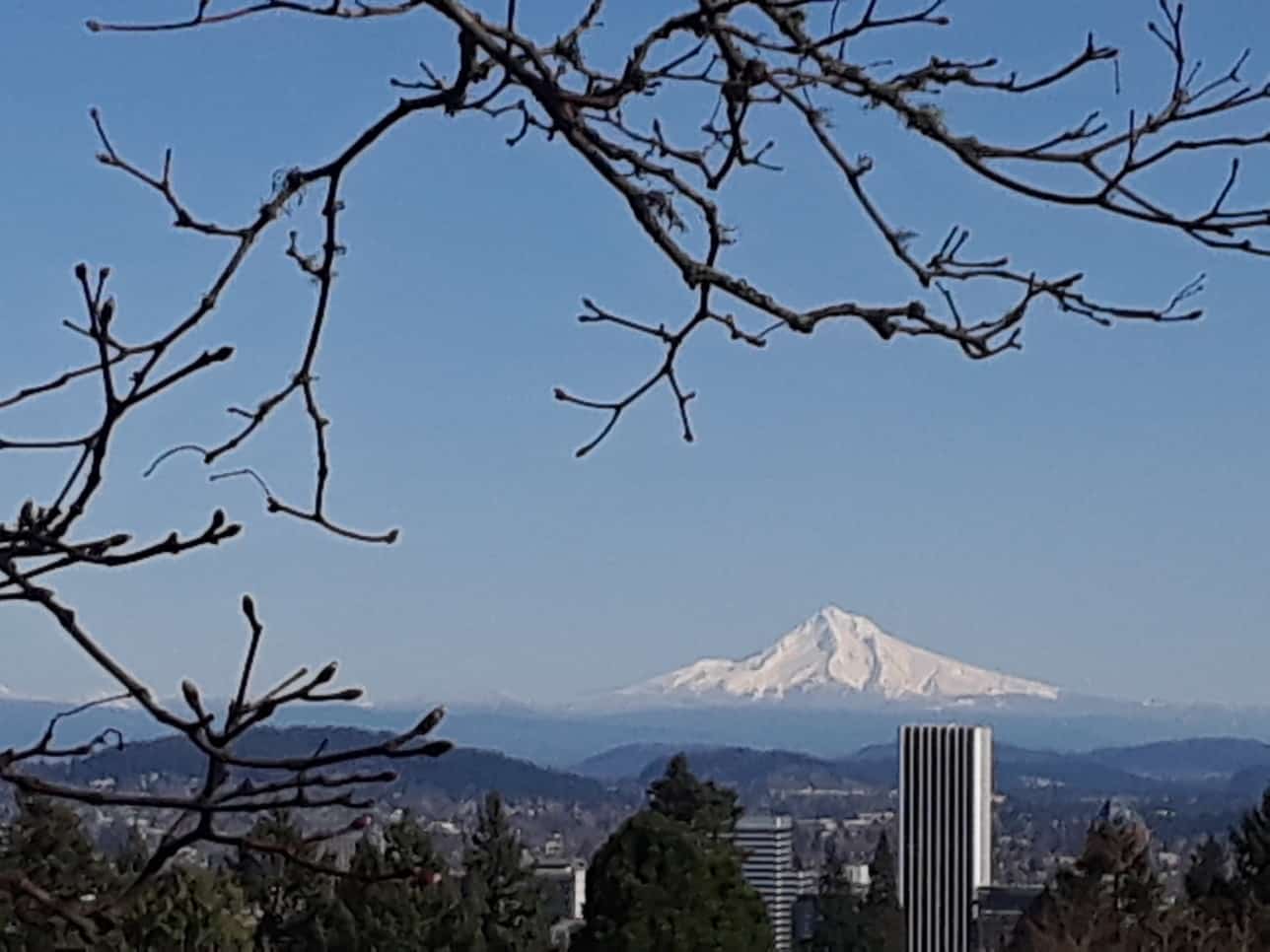With commentary from Your Faithful Editor, Austen Lethbridge-Scarl
- June 1st: George Floyd and the Unheard
- June 29th: The Fourth Demand
- July 6th: Reflections on the Climate Emergency Declaration
- August 17th: What will tear gas do to us? Look to the trees.
- September 14th: A Case for Optimism
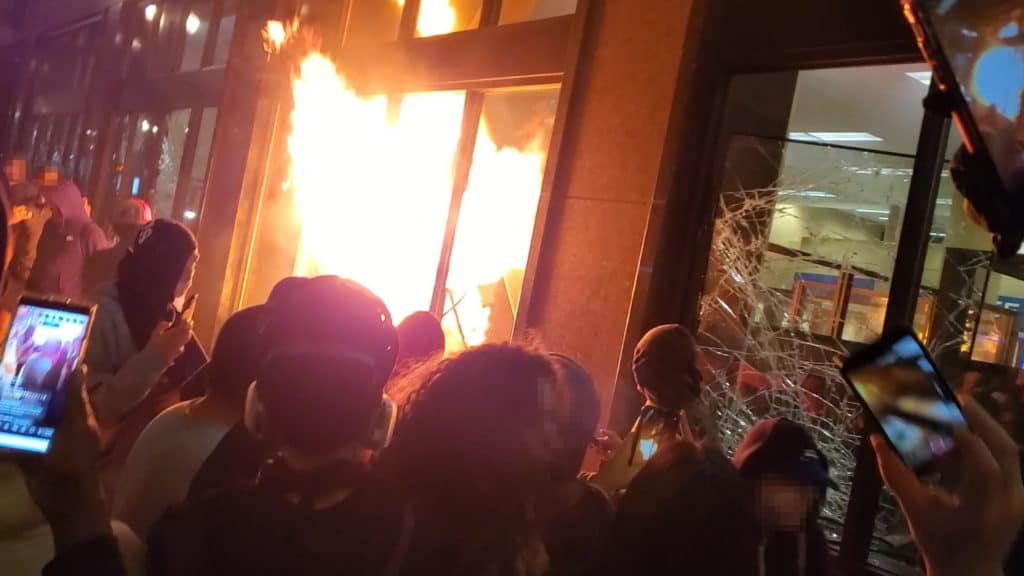
June 1st: George Floyd and the Unheard
But please realize that we might fail. XR has found real success across the globe, including right here in Portland, but those in power, the people actually driving us to extinction, are still so well insulated that it’s entirely possible that our strategies simply aren’t fast enough or powerful enough to break through.
When nonviolence fails, violence follows. In Minneapolis, you can plausibly argue that the rioters are morally in the right while still doing something morally wrong. That won’t be true for climate change. The stakes are so high that almost any action, no matter how awful, will be morally superior to allowing ultimate failure.
XR, 350, Sunrise, none of us are this planet’s last line of defense. If the world is hellbent on ignoring us, if nonviolence truly proves itself useless, we will be replaced. Someone else will step up, with a different playbook, and they will not be ignored, no matter the terrible cost.
George Floyd and the Unheard by Austen Lethbridge-Scarl
June was a turning point. It was the first time we ran editorials with bylines. It was the first time the newsletter started pushing outside the narrow set of topics considered to be the domain of climate change. And it was the first time I began openly questioning the assumptions beneath the climate movement.
In a followup article the following week, “The Just Transition has Begun”, I started explicitly making the case that the struggles against climate change, for racial justice, and for decolonization were not just in alignment but exactly the same fight—all symptoms of a fundamental problem at the core of our society.
Trying to fight these issues individually is, at best, a waste of time we can’t afford. We live or die together. The sooner we understand that, the better.
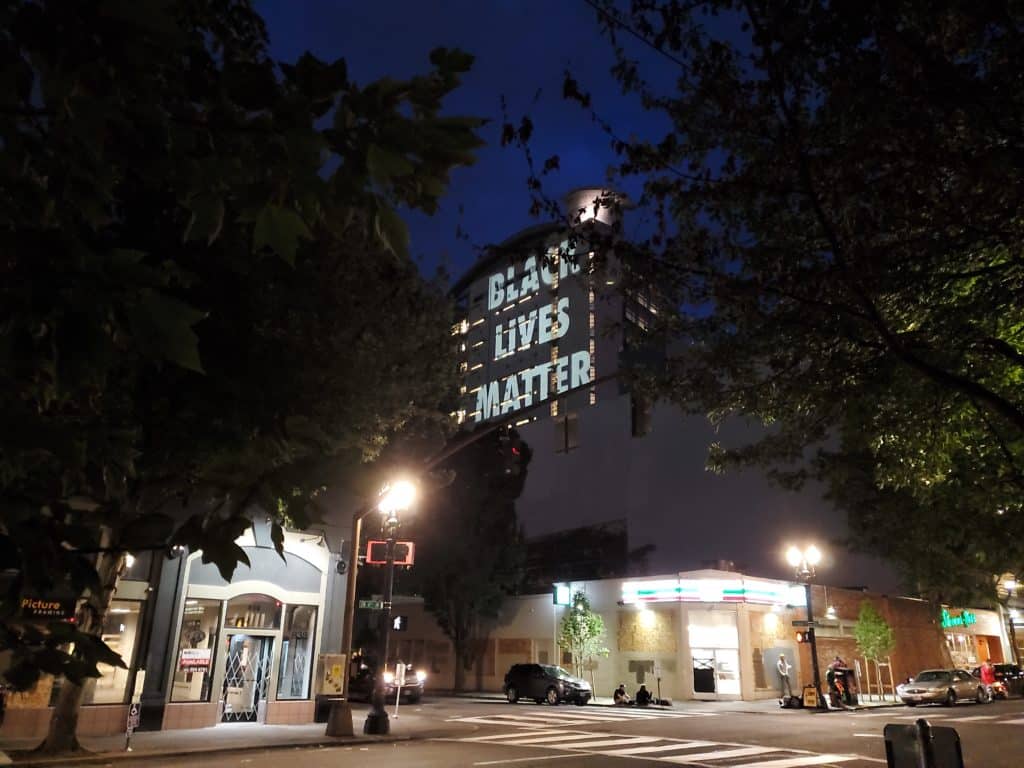
June 29th: The Fourth Demand
“And where do we go from here? Which is the way that’s clear?” David Essex’s 1973 hit song has been rolling around in my mind since Portland (and the United States) exploded into long-overdue protests of police brutality and extrajudicial killings of Black Americans. In the catalyzing case of George Floyd, the killing occurred in broad daylight, on camera, with observers and the victim himself crying for mercy.
The reckoning with racial injustice in a time of pandemic has filled our bridges and parks and streets, flooded TVs and social media accounts, splashed graffiti over huge institutional buildings, and elevated the faces and names of victims of murder-by-cop in a huge “People’s Mural” covering the glass walls of the Apple store downtown. And as a very weird 4th of July approaches, some Americans are facing our violent history and present moment, trying to decide what kind of country we will have in the future.
The Fourth Demand by Janet Weil
Janet Weil’s series on the Four Demands provides a kind of primer for people new to XR who are curious about what the Demands actually mean. XR UK, the flagship chapter of Extinction Rebellion, only had three. When the movement spread to the United States, they were considered insufficient and a fourth was added, demanding that the transition away from fossil fuels be driven by restorative justice, giving extra consideration to groups that have been (and will continue to be) disproportionately affected by the actions of the fossil fuel industry and the climate carnage that follows. This is (apparently) so controversial that it created a rift in the XR movement.
XRPDX’s own stance on this is clear, and Janet’s piece on the Fourth Demand is an excellent breakdown of exactly why this Demand is so necessary if we’re going to survive this crisis.
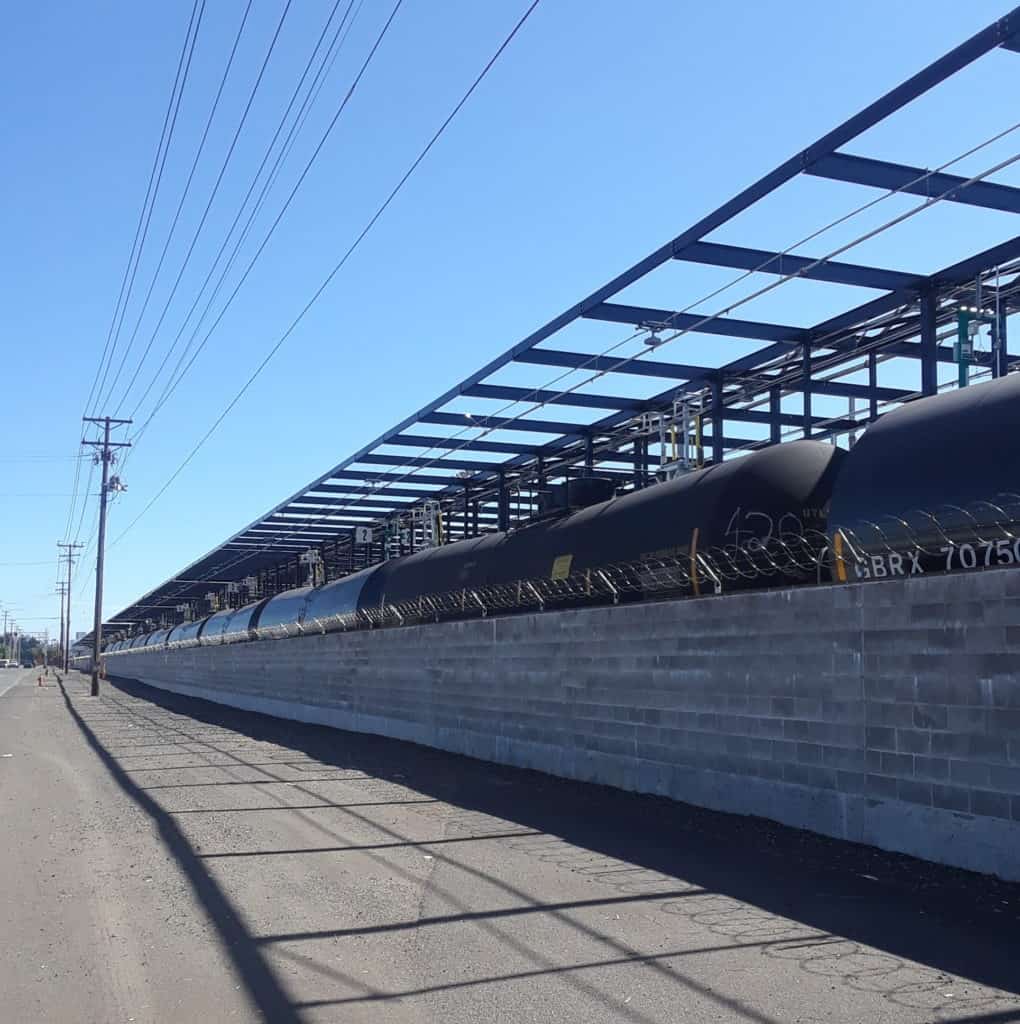
July 6th: Reflections on the Climate Emergency Declaration
For anyone who understands the necessity of making systemic changes to respond effectively to climate change, this should raise red flags. The market is very much a part of why we are in this mess. Time after time, when it comes to legislating climate policy at the state level, the for-profit utilities have consistently put their shareholders’ interest over the common good. They will resist and drag their feet when it comes to conversion to renewables and block efforts to create more resilient and sustainable community-based energy projects. Even when they implement renewable energy projects, they tend to be massive plants that they alone control for the purpose of increased profits. It leaves rate payers, who end up subsidizing these megaprojects, at their mercy.
So, instead of making “Oh, pretty please?” requests to for-profit utilities to act responsibly in the face of this emergency, an effective resolution with teeth would call for investor-owned energy utilities to be municipalized.
Reflections on the Climate Emergency Declaration by Wendy Emerson
When the Portland City Council finally (finally) passed its Climate Emergency Declaration on June 30th, the final product left a lot to be desired. We published a number of responses, but the most on point was probably Wendy Emerson’s.
While the declaration certainly fell short, the way it fell short left some of us wondering what we should be expecting such a thing to accomplish. How effective can an emergency declaration be when the things we scientifically know are necessary are barely under consideration?
I think Wendy nailed it, and her criticisms are going to be just as relevant in 2021 as they were this summer.
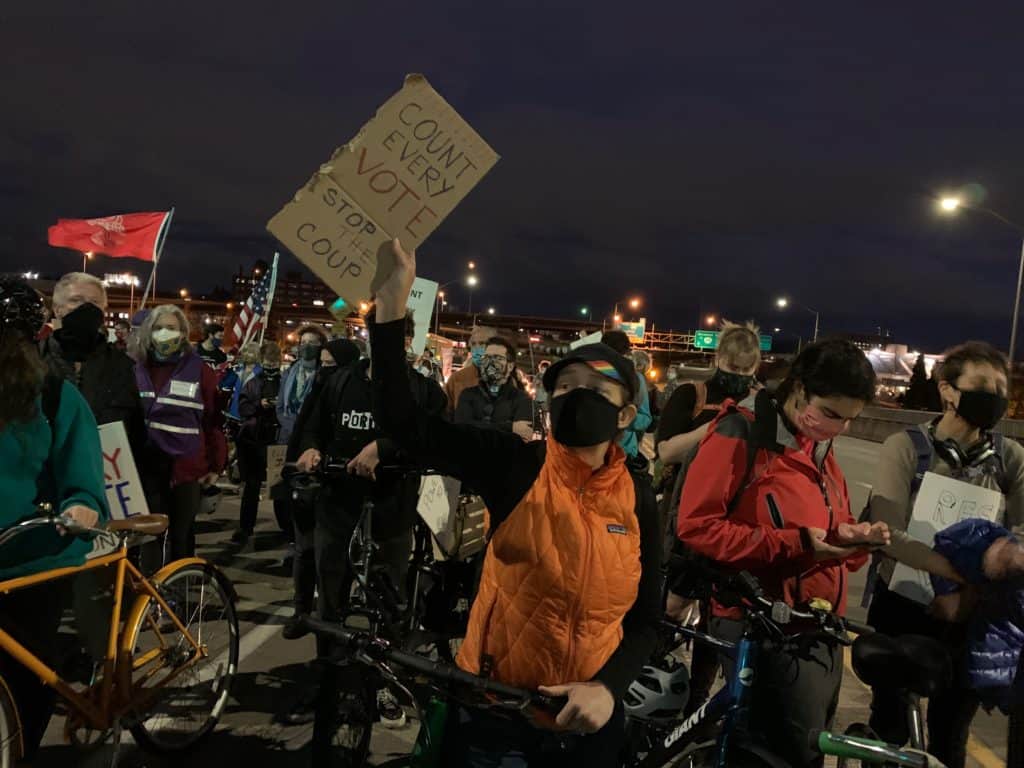
August 17th: What will tear gas do to us? Look to the trees.
Beyond my anger and concern over what all these harsh chemicals are doing to humans and our right to protest, I have to keep attention on tear gas, because I love trees, and trees can’t talk, or walk away. Some of the trees around Chapman Park and Lownsdale Square appear to be dying. The grass is completely gone, and a strange odor rises from the bare dirt. Portland police and Federal agents have sprayed an unknown amount of tear gas and other chemicals (their smoke grenades are just as toxic) on the humans, the ground, the trees, across from the Justice Center and the Federal Courthouse. So much teargas has been deployed that the Federal Aviation Administration saw it on their radars.
Those chemicals, as well as chemicals used to remove graffiti, have now moved into the sewer system, and from there into the Willamette River. Oregon Public Broadcasting (among others) asks, “What will all that tear gas mean for trees, water and wildlife?”
What will tear gas do to us? Look to the trees. by Janet Weil
This wasn’t the first article we wrote about the impacts of tear gas, nor was it the last. But it was the most focused, which is probably why it was our most read article of 2020. Janet’s fears were later confirmed when the Portland’s Chemical Weapons Research Consortium released their study on the chemicals in smoke grenades and what they turn into once let loose in the environment. The results are exceedingly nasty.
The use of tear gas may (or may not) become less common in 2021, but it won’t be because our leaders suddenly started caring about the health of people or the environment. They never have. They never will.
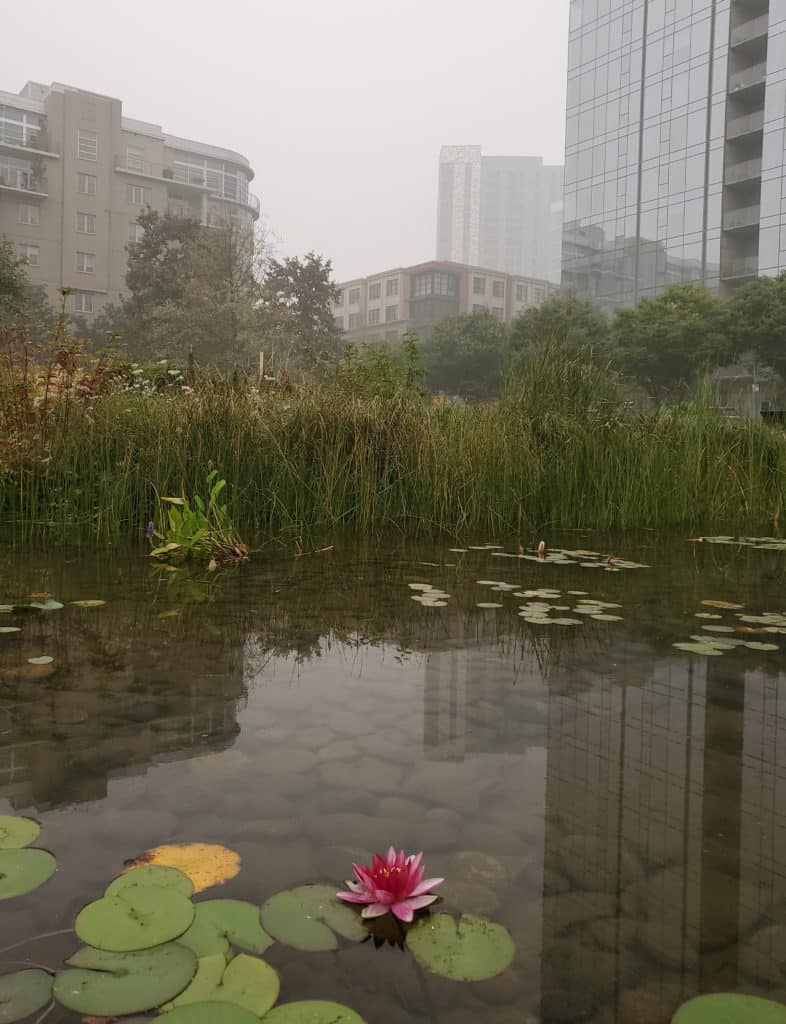
September 14th: A Case for Optimism
But the fact of the struggle itself reveals the truth. The foundations of the world are shaking. I said we needed a fundamental change and I’ll be damned if one didn’t show up. Things we’d have never dreamed of a year ago are now suddenly on the table.
I’d say our odds of stopping climate change still aren’t great. At best, we’re in a race to see which collapses first: neoliberalism or our planet. Meanwhile, about 35% of our country is all-in for fascism right now and liberal democracies don’t have a great track record at resisting these kinds of things. And if either the US or China starts a war with anyone, we’re basically toast.
But there’s a chance! We’re not doomed! That, all by itself, is incredible! Through the ash and smoke, there is still a future, waiting for us to claim it.
A Case for Optimism by Austen Lethbridge-Scarl
One of my hobbies is looking for light in darkness. To assume the worst and argue why, yes, everything is as bad as it looks, but that’s no reason to give up. Today looks a lot less bleak if you decide that yesterday was actually worse.
2020 has led me to a place where I no longer expect anybody to save us. Nobody with power will be willing to do what must be done to save the only planet we’ll ever have, or at least not before it’s already too late. But does that mean we’re done for? What other options do we have?
The answer is at the end of your arms.
(2020 has also led me to being a pretentious hack. I’m sorry.)

